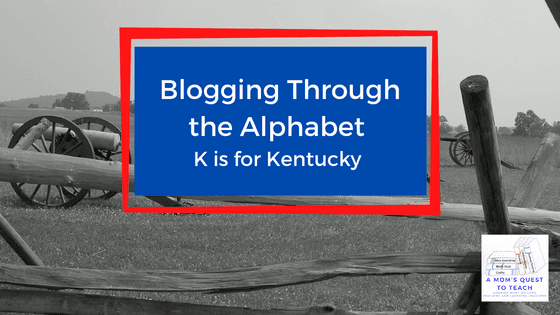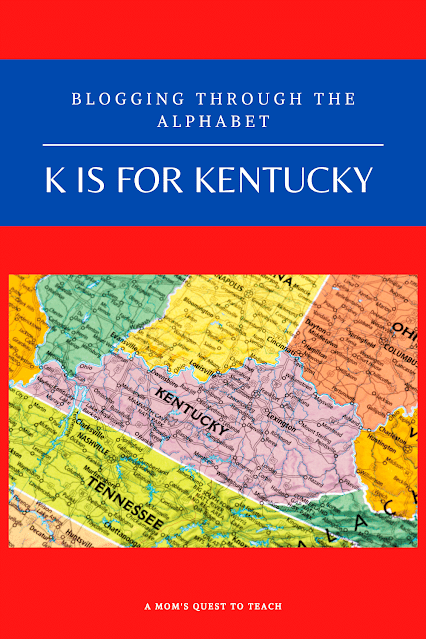This post contains affiliate
links. For more information, please see my Terms of Use and Disclosure Policy
page. Thank you.
"Kentucky! O Kentucky!"
Kentucky! O Kentucky!
His hand is on thy stable door,
Kentucky! O Kentucky!
You'll see your good gray mare no more,
He'll ride her till her back is sore,
And leave her at some stranger's door,
Kentucky! O Kentucky!"
In the spring of 1862, General John Hunt Morgan led Confederate night raiders on a series of raids into Union territory in Tennessee and Kentucky. This would provide the material for a parody of the song "Maryland, My Maryland" in order to provide a warning to the citizens of Kentucky that they better not help Morgan.
Tensions
The tension in and around Kentucky had been brewing since before the beginning of the American Civil War. It was one of several border states where there wasn't a clear distinction of which way it would go when the Civil War broke out. There was a large secessionist population in Kentucky. If Kentucky joined the Confederacy, it would be a huge boon. Kentucky would bring with it a huge population boost and more military manpower. There were horses and mules for the cavalry and transportation, as well as manufacturing centers in Kentucky. It would also bring with it a natural defensive border with the Ohio River. And two rivers flow through Kentucky directly into Tennessee and Alabama.
After the lines had been drawn, it was said that supporters in Kentucky were evenly distributed between the North and the South. After all, Kentucky was the birthplace of both Abraham Lincoln and Jefferson Davis. But with three slave states and three free states on the border, Kentucky did not want to take sides. In fact, Henry Clay of Kentucky had written three compromises to try and prevent the necessity of taking sides in 1820, 1833, and 1850. And Governor Magoffin of Kentucky rejected both Lincoln and Davis' requests for troops.
Of course, just because Kentucky wished to remain neutral did not mean that the American Civil War would pass them by. There were military activities along the border as there were northern regiments stationed in Illinois and southern regiments in Tennessee. Both sides eyed Columbus, Kentucky as it was a key city to the control of the Mississippi River.
Columbus
On September 3, 1861, Confederate General Leonidas Polk moved to take Columbus, Kentucky while the Union General Grant occupied Paducah and Smithlands at the mouths of the Tennessee and Cumberland Rivers. As the Confederates invaded Kentucky first, they were seen by many of the citizens of Kentucky as the aggressors which led them to support the Union. But not all would support the Union as many of the citizens voted to set up a provisional government which was accepted as the 13th Confederate state.
Raids
John Hunt Morgan (June 1, 1825-September 4, 1864) was known as the "Thunderbolt of the Confederacy." He was born in Huntsville, Alabama but had strong ties to his mother's home state of Kentucky. Morgan would enlist in the 1st Kentucky Calvary at the start of the Mexican War.
In the American Civil War, Morgan would be made a colonel in April 1862, participate in the battle of Shiloh, and start his raids into eastern Kentucky in the summer of 1862. On July 4, 1862, he would start a 1,000-mile raid to destroy railroads and telegraph lines and seize supplies. His raid would make national headlines and birth the song "Kentucky! O Kentucky!" He would lead more raids in October and December into Kentucky and would eventually become one of the South's most celebrated Calvary officers.
Even if a state or people wanted to remain neutral and not take sides in the American Civil War, it was near impossible. The Civil War touched upon every aspect of life during the 1860s, just as the problems leading up to the Civil War had for the decades preceding the first shots at Fort Sumter.


Poor Kentucky.... War affects everybody somehow. Very interesting post.
ReplyDeleteIt would be very difficult not to take sides in a war when you're right there between sides!
ReplyDelete